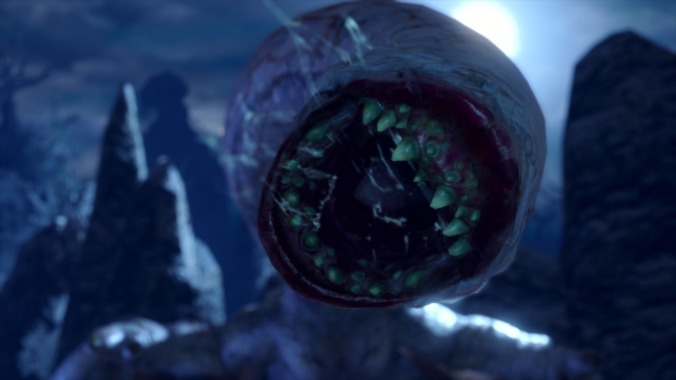Monster Hunter Rise is wonderfully, perfectly tedious

The pleasures of the Monster Hunter franchise can be kind of difficult to describe to outsiders. Sure, there’s the obvious stuff—hit dinosaur with hammer, take parts from dinosaur to make better and shinier hammer, hit meaner dinosaur with above, repeat—but the ritual drudgery that Capcom’s series revels in as a matter of pride can be a difficult obstacle to surmount, let alone justify. Even 2018’s Monster Hunter: World, which was a radical step forward in accessibility for a franchise that never met a crafting system or obscure power-up technique it couldn’t jam in somewhere, was still plagued by god knows how many systems and tutorials for controlling your equipment, your skills, your diet, and more. Monster Hunter isn’t just a game; it’s a hobby—maybe even a vocation. And, honestly, that’s the appeal. The only difference between putting together the perfect monster-hunting kit and building model railroads is that you’re not allowed to slam your toy train engines into a giant electric dick monster when you’re done. (I’m assuming; I’m not subscribed to any toy train people magazines at the moment.)
Monster Hunter Rise gets that. Currently exclusive to the Nintendo Switch, Rise suffers, looks-wise, when compared to the PS4/Xbox One-ready World. Where it soars, though, is in how much living-in its various jungles and swamps allow for. Harking back to earlier games in the franchise with an emphasis on pets and other bits of fiddly, adorable minutiae, Rise nevertheless holds on to World’s most important innovation: Open-world maps that, as the game’s name implies, put a heavy emphasis on gaining a little height on your titanic opponents. You can spend hours climbing Rise’s various frozen highlands and flooded valleys, learning the terrain, finding power-ups that’ll give you the edge in the next hunt, taking pictures of various bugs, and just generally luxuriating in its environments. And then, if you want to climb back down the mountain and hit a giant ice yeti in the head with a massive teddy bear, hey, knock yourself out, champ.
And look, I get it. Highlighting the system glut, the collecting, the sheer tedium of the franchise is a bad way to get people into Monster Hunter. As someone who bounced off the series incredibly hard, more than once—only drawn in by the chance to get in on the ground floor with World a few years back—I get that perfectly arranging your armor for a particular monster, or carefully fishing up useful flounders, or fine-tuning your dog’s hat for the next big battle don’t automatically sound like fun. But gaming is full of things that are fun; overwhelmed with them, sometimes, all screaming at the tops of their lungs. (As someone coming off a recent hour with Balan Wonderworld, please trust me on this.) The genius of Monster Hunter is the same appeal that’s made fly fishermen out of so many retired grandpas over the decades—the slow, steady precision, married to the thrill of suddenly getting to go toe-to-toe with a massive, long-necked penis that wants to eat you whole. (I’m assuming; I’m not subscribed to any fly fishing people magazines at the moment.)
It says something that Monster Hunter games, including Rise, can be so relaxing for so many people, despite the almost Dark Souls-esque brutality of their combat. I spent years trying to find the fun in the fights, and came away vaguely unsatisfied, no matter how much I enjoyed Sonic Spinball-ing around the battlefield with my giant hammers. (Pro tip: If you try the game and it feels stiff, switch weapons; they’re functionally a different game apiece.) It wasn’t until I climbed the mountain, so to speak, and embraced the holistic Monster Hunter, that the real joy began to come through. Rise embraces that side of things, through its encouragement of exploration, resource gathering, and meditative pauses. It’s still a tutorial-ridden mess. (The new mounting system, which lets you essentially play as the monsters, is great though.) That’s the great thing about contracting video game Stockholm syndrome like this, though: Once it really sets in, it can start to feel like home.